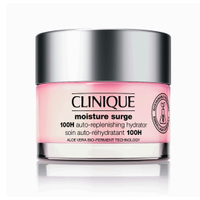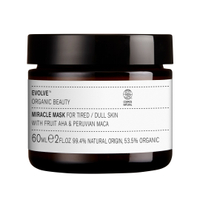The best skincare routine to follow at every age
Dermatologists reveal the ideal skincare routine for your 30s, 40s, 50s, 60s, and beyond

When it comes to your skincare routine, change is not only inevitable, it's also highly advisable. The products you needed and used ten years ago aren’t necessarily going to be what your skin needs now.
For example, during your 30s deep lines or pigmentation may not be a key concern but radiance and finding the best eye cream for light crow's feet is likely to be high on your search history. The 40s are when collagen levels start to make a noticeable decline, so your best night serum (probably retinol) is a staple and finding the best facial sunscreen for the face is an absolute must-do. When you’re in your 50s and 60s, you know what works for you. You’ve probably found your ideal cleanser and best retinol cream but as menopausal skin changes kick in may find you need a bit more bang for your buck.
Whichever life stage you're at, it's worth reassessing your products every now and then. Keeping on top of the best skincare combinations can be the difference between a complexion that's ticking along just fine, and one that keeps getting better with every year that passes.
How to create a skincare routine for your age
This starts with understanding why - and more importantly how - does our skin age? Dr. George Sadowski MD, Founder and Chief Medical Officer of Nourishing Biologicals, explains. "Skin aging involves two different processes:"
- "Chronological aging is determined by genetics and characterized by fine wrinkling, thinning of the skin, and loss of firmness due to inadequate production of collagen (find out why this is so important in our what is collagen guide)
- Extrinsic aging is mainly due to sun exposure, which leads to skin redness, wrinkling, discoloration, and textural changes. Ultraviolet rays can also cause increased destruction of collagen and elasticity."
Next, learn how this plays into your life stage. “Firstly, it’s important to say that it’s never too early to start getting into good skin habits,” says skin health specialist, Dr Anita Sturnham. “Our skin is a dynamic organ, which relies on a consistent skincare regimen to obtain the essential nutrients it needs. And many of the nutrients that our skin needs in our 20s are in fact the same list of nutrients needed in our 30s, 40s, and beyond. However, our skin does have anatomical and physiological needs that change through the decades and often require a more targeted approach.”
Your ideal skincare routine - where to start
Begin with this basic skincare routine for your 30s (made up of four steps for the morning and three for the evening), then update and upgrade it for each new decade with a few product swaps.
Skincare routine for your 30s

Blake Lively
In your 30s, your skincare routine should focus on long-term protection and prevention, with a short-term focus on brightening and hydration.
Sign up to our free daily email for the latest royal and entertainment news, interesting opinion, expert advice on styling and beauty trends, and no-nonsense guides to the health and wellness questions you want answered.
“We know that from the age of 20 years, we lose approximately 1-1.5% of our collagen every single year. So by the age of 30 our collagen and elastin, the important stretchy proteins that keep our skin looking smooth and line free, have significantly depleted,” says Dr Sturnham. “As a result, this age group may start to see the appearance of fine lines and wrinkles. Melanocytes (cells that make brown pigment) can also become unstable, meaning that they are more likely to overproduce brown pigment, melanin, which can lead to hyperpigmentation and sun spots too.”
Morning skincare routine
Cleanser: “I always recommend a gentle cleanse in the morning with a cream or gel cleanser,” says Dr Sturnham. “This is a simple yet effective way to keep your pores healthy and blemishes away, especially if you’re prone to breakouts at certain stages of your cycle.”
Serum: Typically applied after toner and before moisturizer, a serum is a great vehicle for you to integrate your antioxidant-based actives, either niacinamide vs vitamin C, into your skincare routine. “Look for ingredients such as Vitamin C, Alpha Arbutin, and Resveratrol, which are all natural plant-based pigment lighteners,” advises Dr Anita. Hyaluronic acid (HA), the best hydrating ingredient going, should be in there too.
Moisturizer: Dr. Sadowski says, "Moisturize morning and night to improve skin tone, fine lines, and skin hydration."
SPF: Wearing SPF every day is the best way to protect your skin from immediate and long-term damage. “Look for mineral ingredients, such as Zinc oxide and Titanium Dioxide, as these won’t clog your pores. 80% of premature skin ageing is caused by UV damage and as we have UV rays around us all year round,” says Dr Anita.
Our beauty editor recommends...
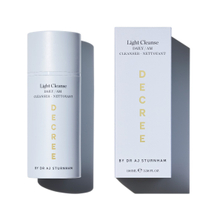
Decree Light Cleanser | RRP: $58/ £44
Packed with glycerin and rose water, this is a gorgeously light foaming cleanser that balances oil levels in the skin and cleans out pores.
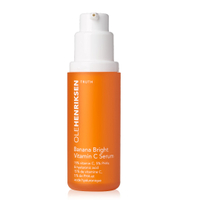
Ole Henriksen Banana Bright Vitamin C Serum | RRP: $29.99/ £56
Containing skin brightening vitamin C, exfoliating acids and banana powder to brighten - this is your ultimate glow in a serum.
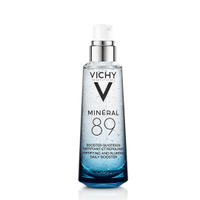
Vichy Mineral 89 Hyaluronic Acid Booster | RRP: $39.99/ £25
Combining hyaluronic acid with Vichy’s unique thermal mineralizing water, think of this serum as your skin’s daily dose of hydration.
Clinique Moisture Surge 100h Auto-replenishing Hydrator | RRP: $25/ £39
This light gel-like moisturizer is filled with hydrating ingredients and works for all skin types. Light, less-occlusive moisturizers are usually best at this age, unless you have seriously parched skin in which case you might want to pick something heavier (and look into what is slugging)
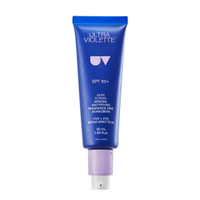
Ultra Violette Lean Screen SPF50+ | £34 (UK only)
A broad-spectrum mineral SPF that suits all skin types, especially sensitive ones. It leaves no white cast and gives the skin a gorgeous natural glow.
Night skincare routine
Cleanser: "Double cleanse your skin at night," Dr. Sadowski recommends. "This ensures you're removing all makeup, grime, bacteria, and pollutants from your skin and allows for better product penetration," he adds. Use something to first remove makeup, such as micellar water, which is fast, effective, and non-greasy. Then you need a balm, oil, gel, or cream cleanser (choose the formulation you prefer) to get the real grime of the day out of your skin. Lather it up with warm water on your face, then remove with a terry face cloth or a splash of cool water. Read our roundup of the best cleansers to help narrow down the search.
Serum: Time for the big guns, a.k.a. retinol. The best retinol creams and serums are potent line-reducing, skin-smoothers. Retinol is probably the most effective skincare ingredient out there, but can definitely cause irritation for some beginners, so start off with a low concentration a few nights a week and build up your tolerance. "Begin using gentle products with retinyl acetate on alternate days to help improve the signs of aging and uneven pigmentation," Dr. Sadowski says.
Night cream/oil: Much like your day cream, this is about comforting and cushioning your skin, sealing in all your other products, and if a few gentle active ingredients happen to be in there too, so much the better!
Our beauty editor recommends...
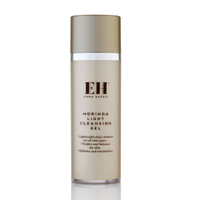
Emma Hardie Moringa Light Cleansing Gel | $47/ £34
A light gel that turns into a milky lotion to remove all make-up, dirt, and pollutants. Containing moringa and sweet almond oil, it also leaves skin feeling plump, soft, and hydrated.
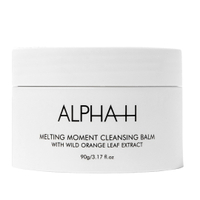
Alpha-H Cleansing Balm | $45/ £34.95
With a gorgeous orange scent, this buttery balm is great for all skin types - especially dry skins that need extra hydration and oily skin that can’t afford to be stripped of natural oils.
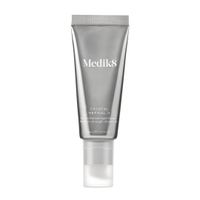
Medik8 Crystal Retinal | $59.99/ £42
Available in four strengths, this retinaldehyde serum gets to work on fine lines and wrinkles fast and creates brighter and firmer-looking skin.
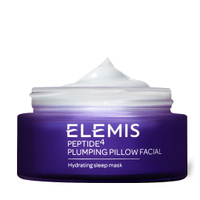
Elemis Peptide4 Plumping Pillow Facial | $65/ £52
Not only does this smell amazing, but it works at plumping, hydrating and repairing skin while you sleep.
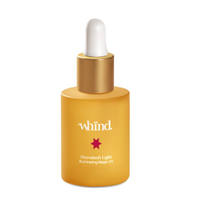
Whïnd Marrakech Light Illuminating Magic Oil | $75/ £69
This brilliant facial oil not only smells divine but it nourishes the skin from the inside out without feeling greasy or sticky. Drier skins will lap it up but it works on oilier complexions too.
Added extras:
Exfoliate: When it comes to exfoliating, Dr Sturnham's advice is less is more. “Some believe that if they scrub their skin Brillo pad style, they will remove blemishes or as a hyperpigmentation treatment. In fact, over-exfoliating can damage your skin, leading to increased redness, sensitivity, pigmentation, and spots.” Some key exfoliating ingredients to look out for are lactic acid, salicylic acid, and bentonite clay, seek them out in non-gritty formulations such as serums and peels.
Eye cream: Optional, but if you're worried about the area or are starting to notice puffy eyes more often, use something light that contains caffeine. You can also go a more intense route, depending on need. "Invigorate your skincare routine with an eye cream with growth factors and retinyl acetate to help reduce fine lines, dark circles, and puffiness," Dr. Sadowski recommends.
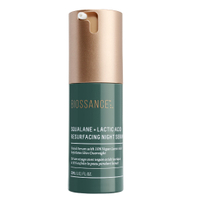
Biossance Squalane and Lactic Acid Resurfacing Serum | $62/ £48
Slather this milky serum all over before going to bed. As you sleep the lactic acid gently but effectively sloughs away all the dead skin laying on the surface and allows fresher skin cells to come to the surface.
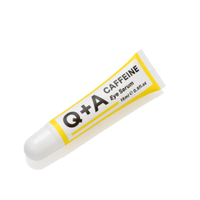
Q+A Caffeine Eye Serum | $7.80/ £6.50
Combining caffeine to de-puff and tackle dark circles as well as antioxidants, this light eye cream detoxifies and protects this very delicate area of skin.
Skincare routine for your 40s

Naomie Harris
“During the perimenopause - the ten-year period leading up to the menopause - your sex hormone levels decline significantly. In particular, your Oestrogen, which is needed for collagen production and to support skin barrier function. Your skincare strategy should therefore focus on boosting collagen formation and hydration within the skin, to counteract the hormonal changes,” advises Dr Sturnham.
“In terms of skincare, switch out anything that’s too stripping like foaming cleansers and facial brushes. Cream or gel cleansers allow for a hydrating, barrier supportive cleanse.”
What to add to your basic skincare routine:
Hyaluronic toner: This helps to rebalance skin PH and hydrate the skin.
Supplements: Boost collagen from within with supplements. “Look for one with ingredients that enhance the skin's ability to build and repair, such as Hyaluronic acid, phytoceramides, and vitamin cofactors.”
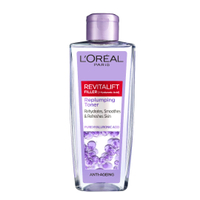
L'Oreal Paris Revitalift Filler [+Hyaluronic Acid] Face Toner | $9.59/£7.99
Designed to re-plump and rehydrate, swipe this moisture-drenching toner over cleansed skin before applying serum.
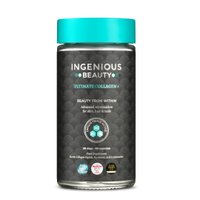
Ingenious Beauty Ultimate Collagen | £60 for 90 capsules (UK only)
Clinically proven to improve the quality of the skin, this daily supplement combines marine collagen (they do a vegan formulation too), hyaluronic acid, and astaxanthin, which is 6000 times more powerful than vitamin C.
Skincare routine for your 50s

Lucy Liu
Most of us experience - or at least begin to experience - menopause during our 50s, and this brings with it estrogen-deficient skin and some of the most surprising changes since our teenage years. The main issues tend to be skin dryness, pigmentation, and hormonal breaking out, so ensure your products are up to the job.
Dr. Sadowski also stresses the importance of being consistent. "Use a serum, eye cream, moisturizer as a basic twice daily routine," he says, and to keep an eye out for products containing antioxidants, anti-inflammatories, growth factors, hyaluronic acid, and collagen peptides help improve collagen production and improve overall skin tone and texture.
What to add to your basic skincare routine:
Richer textures: As skin gets drier with a lack of natural sebum, seek out richer, emollient-heavy day and night creams for a youthful bouncy look; your skin will drink them in.
Tweakments: If you're not shy of needles and want to go down the injectable route, a session of Botox or hylauronic acid filler every six months to a year, depending on need, can work wonders on deep lines and loss of facial volume. Or, take a look at our honest Profhilo review to learn more about the 'injectable moisturizer'.
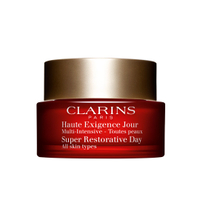
Clarins Super Restorative Day Cream | $77/ £77
Formulated specifically for menopausal skin, this velvety cream has been formulated to boost collagen, and reduce pigmentation all while hydrating and softening fine lines. It’s everything you need in a pot.
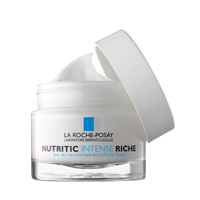
La Roche-Posay Nutritic Intense Riche | $27/ £18
No frills but absolutely brilliant. This is a gorgeous thick and rich cream that is specifically for dry skin that needs lots of hydration and extra TLC but it still manages to feel light and comfortable on the skin.
Skincare routine for your 60s and beyond
Skincare routine for your 60s

Julianne Moore
Older, more fabulous and undoubtedly wiser, you know what works for your skin and it’s not going to change that much or throw any unexpected curveballs your way. Now, it’s about maintaining that ageless complexion you've worked hard for. Holding onto hydration, dealing with a loss of firmness, and fading pigmentation are likely to be your biggest concerns.
What to add to your basic skincare routine:
Gentler retinoids: “Keep up with antioxidants in your morning serum and at night keep using a gentle serum rich in a retinoid, such as a granactive retinoid. This will aid new collagen production and boost repair without exacerbating dryness and sensitivity.
Harder-working creams: At the moisturizer step, add in plant-based peptides and barrier-supportive ceramides to keep your skin strong. Try integrating a gentle acid-based exfoliating mask once a week, to improve cell turnover and repair,” recommends Dr Sturnham.
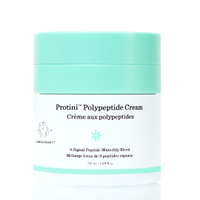
Drunk Elephant Protini Polypeptide Cream | $32.80/ £59
With a unique watery-gel texture, this cream may feel lightweight but it packs a serious hydrating and strengthening punch. It contains nine different types of peptides to make skin firmer and stronger.
Evolve Miracle Mask | $28.80/ £25
This has the formula transparency and gentle skin-loving properties of the best DIY face masks without the faff of making them. Blended with 100% natural fruit acids that leave skin looking brighter and feeling like velvet. Apply a thick layer on cleansed skin, leave for five mins, and then rinse away. Simple as that.
woman&home thanks Dr. Anita Sturnham founder of Nuriss Skin Clinic and Decree skincare and Dr. George Sadowski, MD of Nourishing Biologicals for their time and expertise.
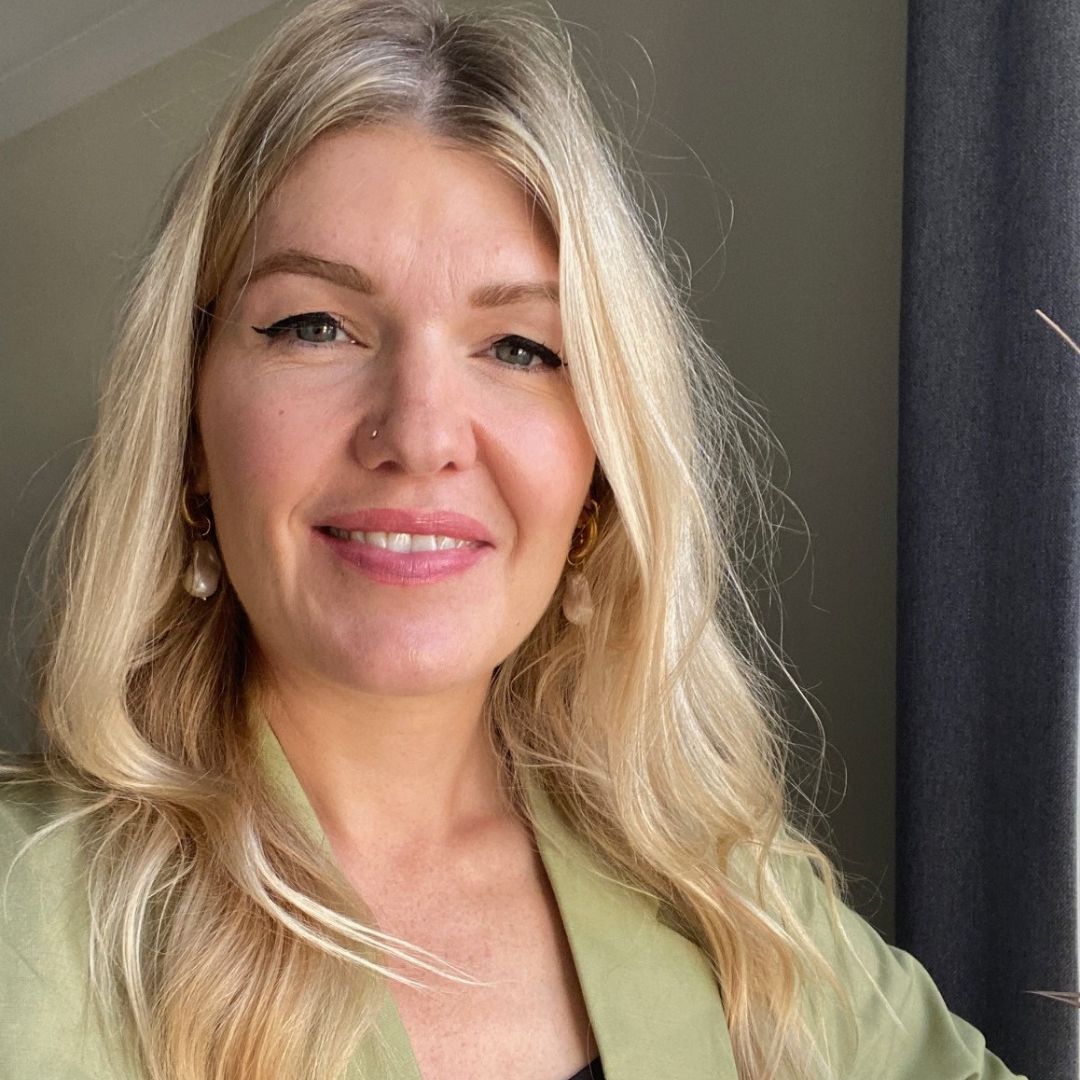
As woman&home's Beauty Channel Editor, Fiona Mckim loves to share her 15+ years of industry intel on womanandhome.com and Instagram (@fionamckim if you like hair experiments and cute shih-tzus). After interning at ELLE, Fiona joined woman&home as Assistant Beauty Editor in 2013 under industry legend Jo GB, who taught her to understand ingredients and take a cynical approach to marketing claims. She has since covered every corner of the industry, interviewing dermatologists and celebrities from Davina McCall to Dame Joan Collins, reporting backstage at London Fashion Week and judging the w&h Beauty Awards.


